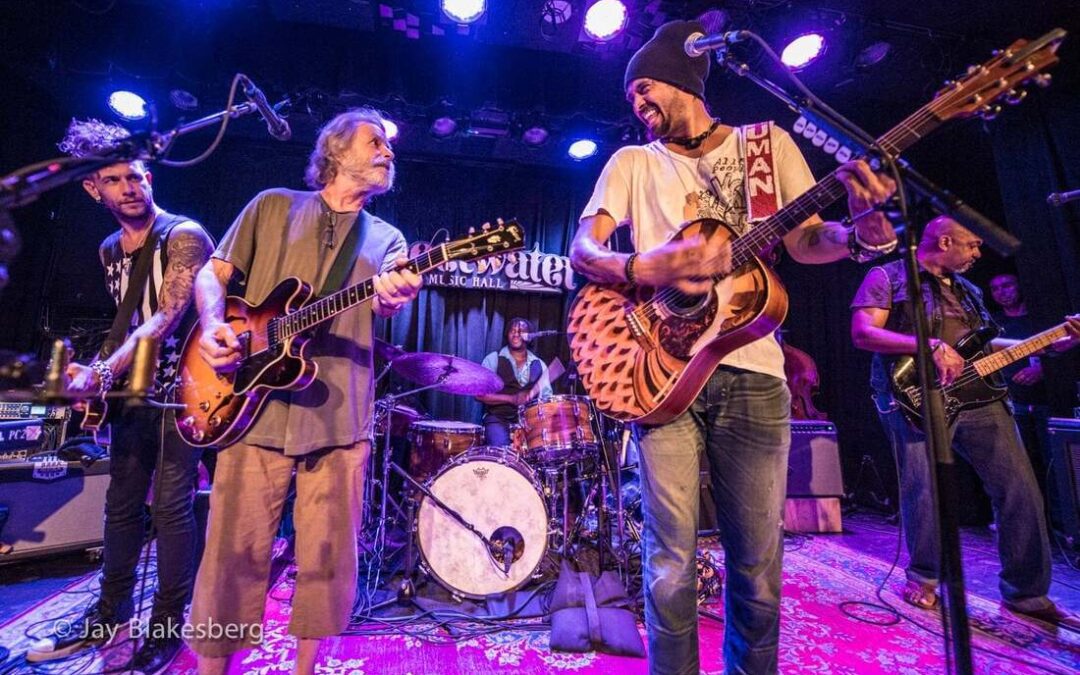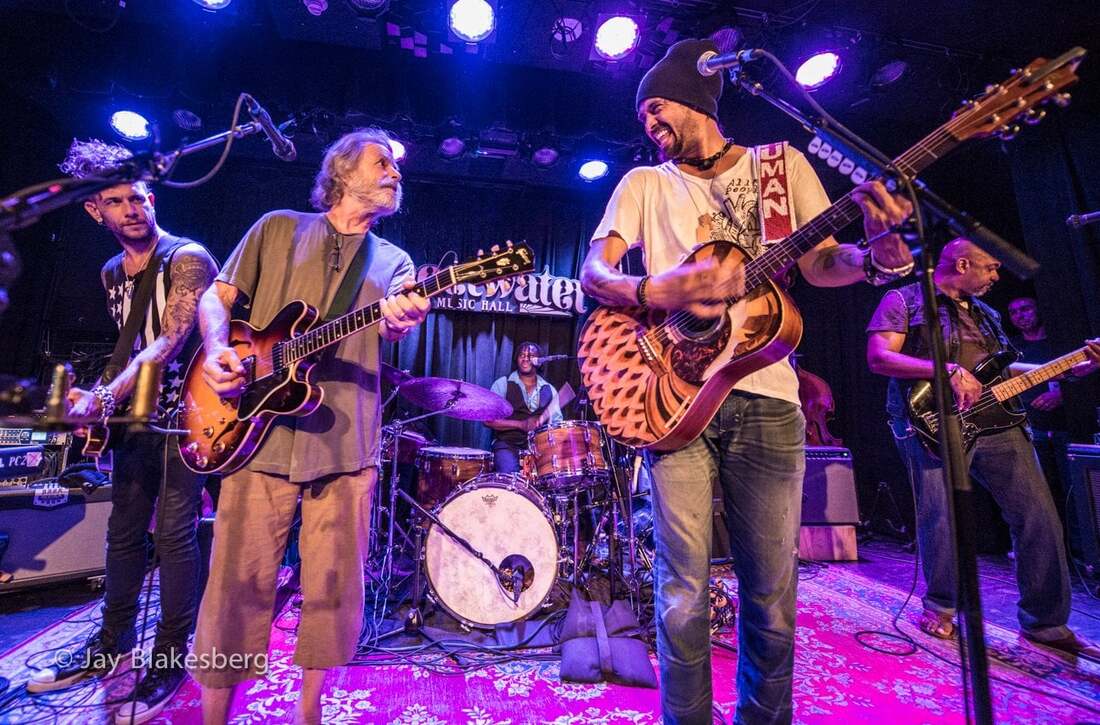Each organization has managed its fate distinctly.
MTC unveiled its 54th season’s slate of productions in October, kicking off the season in November with its production of American Dreams, an interactive game show live via Zoom in which the audience helps to decide who wins citizenship to the U.S. MTC has flooded the zone with content related to its past, present and future productions, staying deeply connected to its audience as its eyes an uncertain future that it hopes will allow in-person productions in late 2021.
The usually feverish pace at the Throckmorton Theatre, typically a nonstop hive of creativity, from jam-jacked comedy shows and concerts across multiple genres to theatrical productions and art shows and more, has slowed immensely. The Throckmorton’s longstanding partnership with SF Opera Orchestra musicians provided the #MillerTakeover street closures a weekly, gorgeous classical music soundtrack. And now the theater hopes to launch its first online project, “Blue Yonder,” Kate Aspengren’s collection of monologues that was filmed in the theater one at a time with safety measures in place, according to the Marin Independent Journal. They’re also ready to stream performances from the space’s Tivoli Room and Main Stage.
But through the past nine months of silenced sonic art in the 94941, MTC and Throckmorton have had something the Sweetwater lacked: the ability to appeal directly to its loyal followers for tax-deductible donations. Other than a successful an IndieGogo campaign that raised more than $18,000 to support furloughed employees, there hasn’t been a way for the community to directly support the Sweetwater.
But not anymore.
In a note to its patrons and the larger Bay Area music community, the Sweetwater board of directors announced the creation of a new California 501c3 non-profit public benefit organization, which has begun operating the Sweetwater’s music and education programming.
“The mission of our new non-profit is to ensure the infinite legacy of Sweetwater, not only by continuing to support the music that reflects the cultural diversity of Marin County and the greater San Francisco Bay Area, but also by showcasing all forms of arts and education to future generations,” Sweetwater officials wrote. “Your fully tax-deductible donation is a thank you note for the past and a promise to the future.”
“Since the original Sweetwater first opened its doors in 1972, and throughout the journey to our current state-of-the-art location, our iconic Sweetwater stage has hosted legends,” they continued. “And like you, we’ve missed these artists and all the others who have graced our venue. But our who’s-who of rock & roll history is only part of our story. Because Sweetwater is community. It’s education. A center of belonging. Everyone is always welcome. Arms, hearts, and minds wide open.”
DONATE TO THE SWEETWATER MUSIC HALL HERE.
DONATE TO MARIN THEATRE COMPANY HERE.
DONATE TO THE THROCKMORTON THEATRE HERE.
There remains some optimism that music and theatrical venues will get some financial relief via the Save Our Stages Act, a bipartisan relief package for venues and indie music presenters that has the support of both Senate Minority Leader Chuck Schumer (D-NY) and Sens. John Cornyn (R-TX) and Amy Klobuchar (D-MN). The Save Our Stages Act would provide grants to independent live music venues, festivals, promoters and agencies that have lost nearly 100 percent of their revenue since the pandemic. A companion bill in the House is led by U.S. Reps. Peter Welch (D-VT) and Roger Williams (R-TX).
In an effort to save irreplaceable venues like the Sweetwater, more than 1,300 venues formed the National Independent Venue Association (NIVA), retaining powerhouse lobbying firm Akin Gump Strauss Hauer & Feld to seek tax relief and more flexible loan programs. The organization is leaning on the overall impact of live music as an “economic multiplier,” a powerful force whose events have positive ripple effects on surrounding businesses like restaurants, retail shops and hotels. According to a 2017 study from the National Endowment for the Arts, the value added by arts and culture to the U.S. economy is “five times greater than the value of the agricultural sector.”


